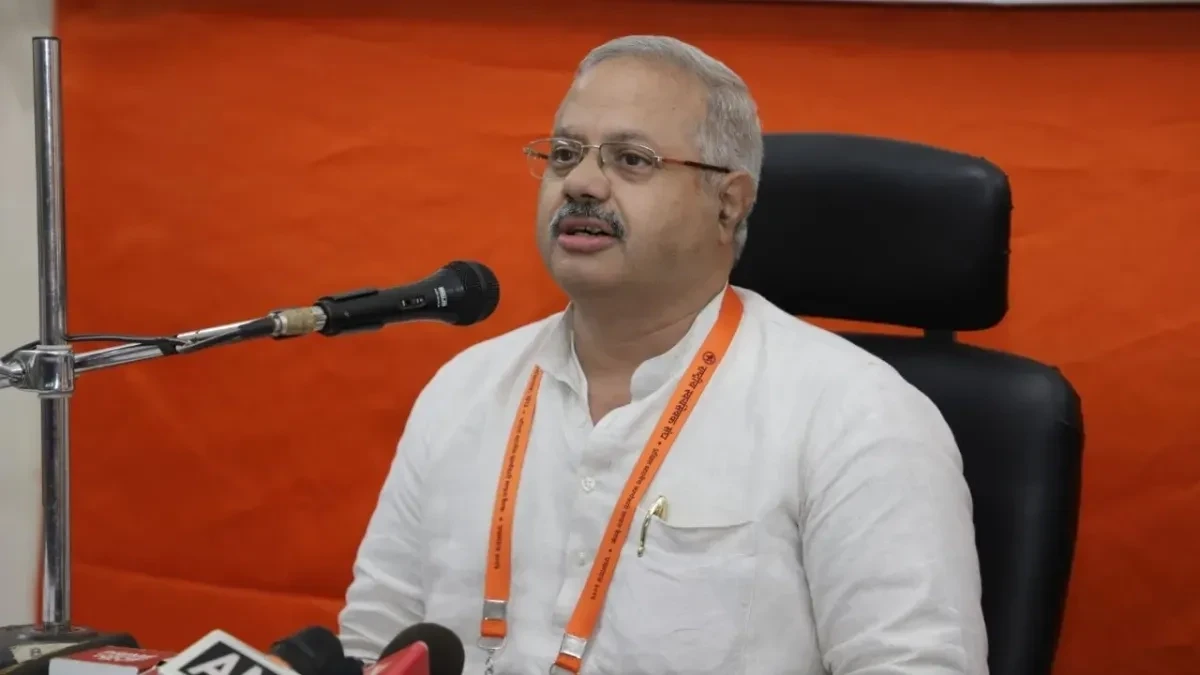The Rashtriya Swayamsevak Sangh (RSS) has expressed its stance on the ongoing language debate, advocating for primary education in local languages.
Sunil Ambekar, the RSS Akhil Bharatiya Prachar Pramukh, emphasised that all Indian languages are national languages. He stated, “Sangh has always had the stand that all languages of India are national languages. People speak their languages in their own places. Primary education should be disseminated in the same language, this is what everyone has been requesting. This is already established.”
The language controversy emerged following the introduction of the Three-Language Policy under the National Education Policy (NEP) 2020. This policy requires students to learn three languages during their schooling years. It aims to foster multilingualism while balancing national unity with regional diversity. The policy provides states and institutions with flexibility in selecting which languages to teach, ensuring at least two of them are native to India.
Language Policy Adjustments
States like Maharashtra, Karnataka, and Tamil Nadu have recently reversed their stance on the three-language policy. These changes reflect a growing preference for prioritising local languages in primary education. The RSS’s position aligns with this trend, advocating for instruction in the language spoken locally by communities.
In addition to addressing the language issue, the RSS commented on the situation in Manipur. They acknowledged that resolving such issues takes time and cannot happen overnight. However, they noted that compared to last year, there has been progress towards normalcy.
Progress Towards Peace
Sunil Ambekar remarked on the improving conditions in Manipur by saying, “It is the beginning of peace. Dialogues are being held on both sides, so a path will come out of it.” This statement highlights ongoing efforts to foster dialogue and find solutions to conflicts in the region.
The NEP 2020’s emphasis on multilingualism seeks to promote linguistic diversity while maintaining a sense of national unity. By allowing states and educational institutions flexibility in language selection, it aims to respect regional preferences and cultural identities.
Overall, these developments underscore a broader movement towards recognising and valuing India’s linguistic diversity within its educational framework.
